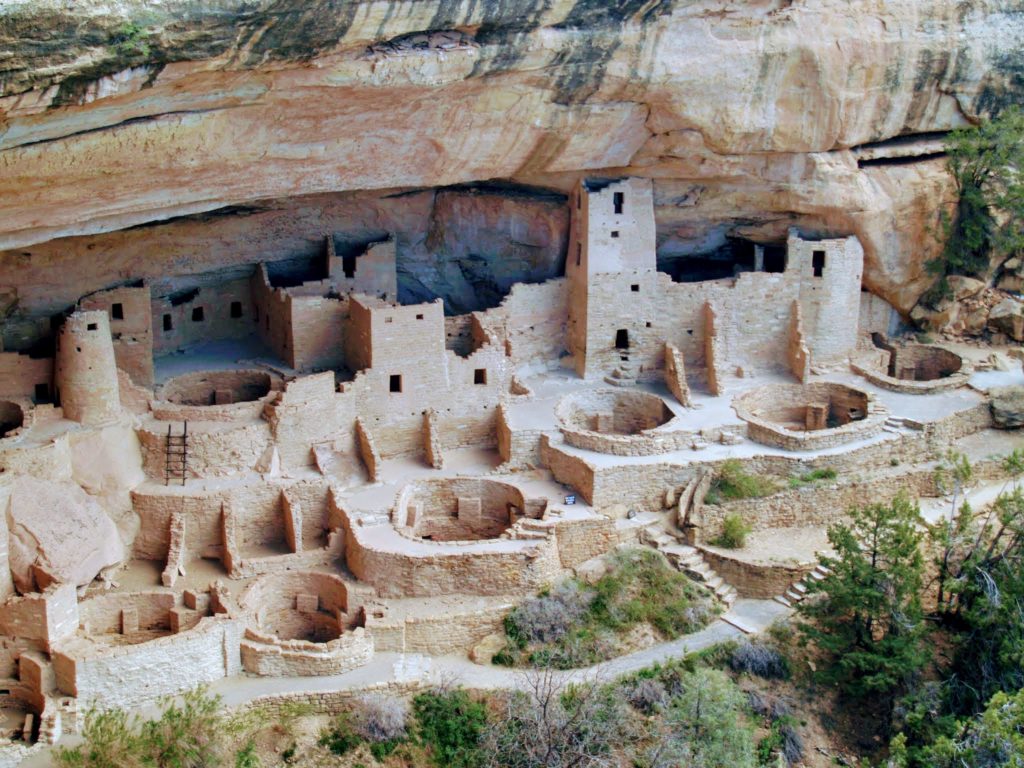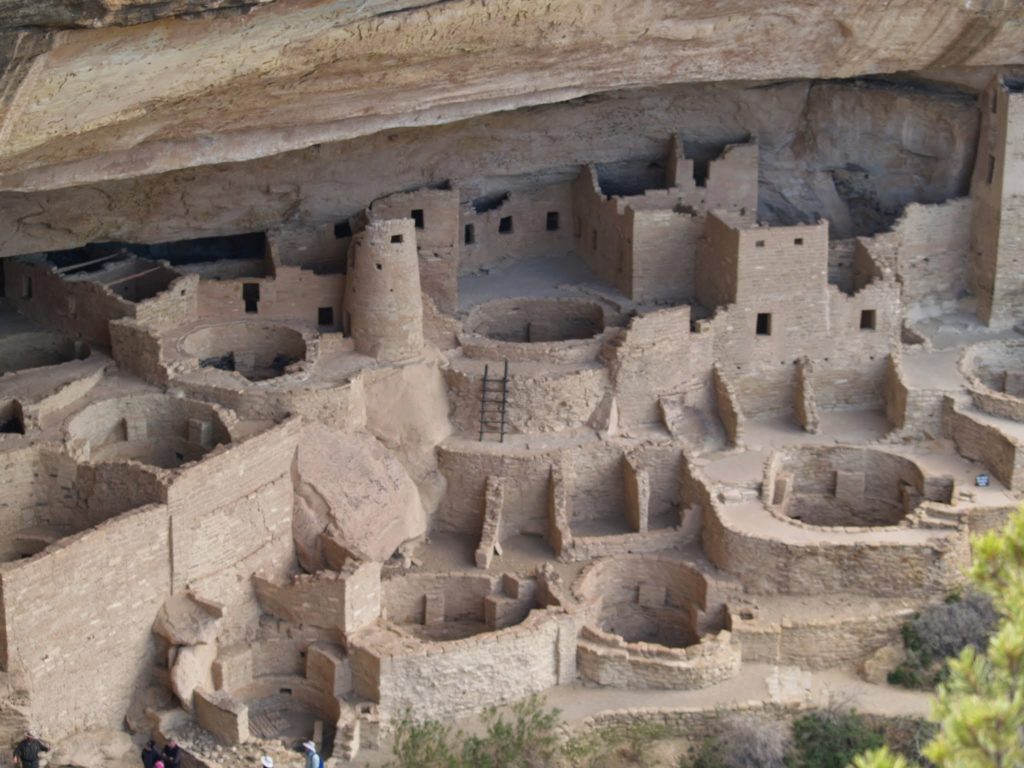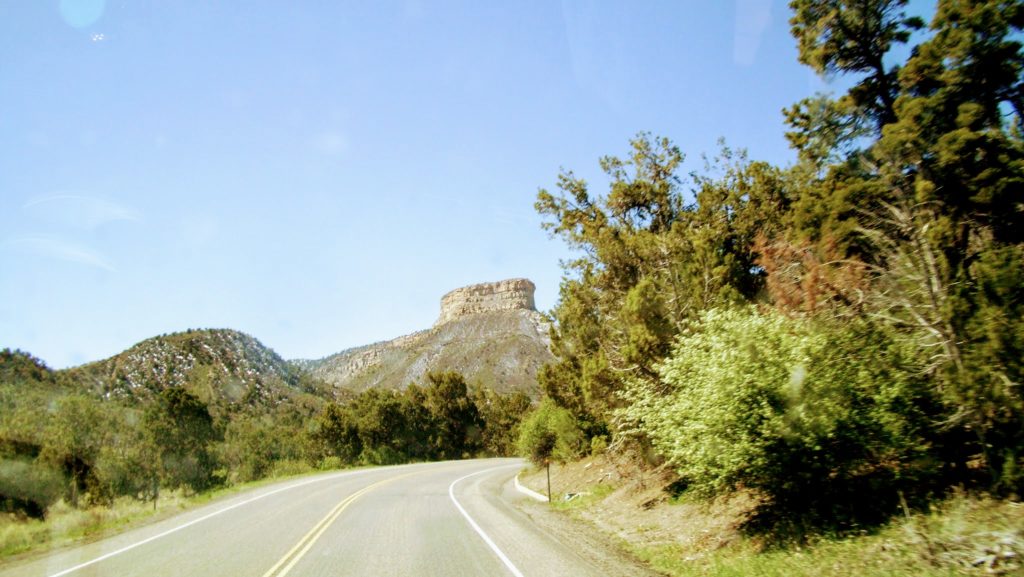Virgin Birth
Isaiah 8: Because when all is said and done, the last word is Immanuel–God-With-Us.
When the tiny nation Judah is under attack on two fronts Isaiah goes to King Ahaz with the promise that Judah will prevail and the attack will fail. Ahaz can hardly believe it. His nation is out manned and out gunned by the invaders. Isaiah tells him to ask for a sign, any sign, and it will be given him. However, Ahaz’s lack of faith is apparent when he off handedly says, “Oh, I won’t do that.” Isaiah tells him that the Lord’s displeased with his refusal to even bother asking for a sign, but that one will be given anyway. It’s here that we get into “virgin birth” talk. However, the promise isn’t for the Messiah to come, it has to do with current circumstances. Isaiah says that before a girl, now a virgin, can marry, conceive, and give birth (in other words, a poetic way of saying “nine months”) that those armies attacking Judah will be gone. To underscore the reason for this withdrawal the child could properly be named “Immanuel” or “God-With-Us.” Isaiah goes on to express God’s displeasure with Ahaz but, still, the bottom line remains. When all else is “said and done” “Immanuel” remains true, God is with us. When Christ is born this incident comes to mind and is played out in a very literal way. This time it is literally a virgin who gives birth, and this time it really is God who is with us. In these related incidents we see the dual nature of prophecy as there’s a very current application that’s echoed in an unimaginable way in a more distant future. We also see that, today, we can grasp this wonderful truth at a level Isaiah could hardly imagine: God is with us indeed.
Take Away: How wonderful to be reminded of Immanuel God-is-with-us.
Tag: prophecy
Devotional on Isaiah
Free will and accountability
Isaiah 8: No, we’re going to study the Scriptures.
While telling of future events wasn’t the major job of most prophets, it’s the one we immediately think of when we think of the work of the prophets. Actually, these men of God mostly “forth-told” rather than “fore-told.” Even when they speak of the future it’s often spoken of in a conditional way: “If you do this, then that will happen; if you do that, then this will happen.” In fact, a major theme of these men of God is to remind the people of their free will. That doesn’t mean God is helpless, but it does mean, at least in this context, that the Lord allows people the freedom to decide, and then makes them accountable for their decisions. As Isaiah goes about proclaiming what’s coming if these people stay on the road they’re on, people say to him, “When I want to know what’s coming, I’ll go to a fortune teller or hold a séance.” Isaiah says, “If you want to know what’s coming, take a look in the Scriptures.” He isn’t saying that the Scriptures contain some kind of secret road map to the future. Instead, he’s saying that there’s plenty of evidence in the Scriptures that God won’t forever put up with their foolishness. Repeatedly, in the Scriptures, the Lord has warned them and it doesn’t take some supernatural experience to see what’s coming. Talk about a timeless truth, this is one! Today, I don’t need a fortune teller. There’s plenty of information already available to me in the Bible about how God responds to sin and rebellion. If I insist on ignoring God I don’t need a crystal ball to know what’s coming.
Take Away: The Bible is quite clear as to the intentions of the Lord.
Devotional on Isaiah
Dual level preaching
Isaiah 9: For a child has been born — for us! The gift of a son — for us!
Sometimes the prophet does exactly what we generally think of a prophet doing: he speaks of the future. Isaiah says that even when oppressors come and seem to destroy everything that God will have the last word. That Word, Isaiah says, will be in the person of a Child who can rightly be called names like “Strong God” and “Eternal Father.” Have you ever wondered about the state of mind of men like Isaiah when they speak words like this? Does Isaiah see it all: manger, shepherds, and wise men? Or does he scratch his head and wonder why he just said that? I think the answer is somewhere in the middle. I can give a very minor personal example of what I mean. A few weeks ago I was delivering my Sunday morning sermon and found myself emphasizing something that had originally been only a minor part of my sermon. Such an event is hard to describe to people who haven’t preached, but I think most everyone who has carried on spiritual conversations have, at times, experienced something similar. Honestly, as I thought about that sermon and remembered who was in the congregation I had the idea that maybe the Lord wanted to encourage a good person who was going through some challenges in their life. Still it never crossed my mind to “aim” that portion of the sermon at anyone. I was surprised that I had pursued that point as far as I did. A few days later, with no thought of that sermon, I was praying and dealing with what I thought was a totally unrelated issue. Suddenly, the words that I had said on Sunday morning came back to me and I realized that on an entirely different level they were meant for me! At that moment, the “deeper meaning” of what I had said became real to me. I think that prophets like Isaiah operate at that level when they speak of things like those in Isaiah 9. Had you had a frank conversation with Isaiah about his promise of the “gift of a son” I think he would have plugged it into some current situation in his nation. That isn’t to say he was ignorant of there being more than he could grasp, but that, for him, these words applied right then and there. Only as God’s plan is played out does the greater meaning of the old prophet’s words come to light.
Take Away: Even when we think we know what’s going on we’re often surprised to later realize that the Lord was working at levels beyond our grasp.
Devotional on Isaiah
Twigs and forests
Isaiah 11: The life-giving Spirit of God will hover over him.
The flow from current events to spiritual events of the future makes some passages hard to read. Isaiah has declared that the army of their enemy, Assyria, was used of God to purge his people, but went too far. He pictures Assyria as a great forest filled with huge trees. However, for all its majesty, that forest will be leveled because of the anger of God. Then, with no real segue Isaiah continues with his “forest” illustration, proclaiming that out of the remains of Judah just one small twig will spring up. Compared to the great “forest” that is Assyria, this green twig might seem insignificant. That “twig,” though, will be overshadowed by the Spirit of God. It will grow to such a size that all the forests of the world will seem small in comparison and that “twig” will reach out in wisdom, understanding, direction, strength, and knowledge. I don’t know what Isaiah or his contemporaries thought of the unexpected direction of this prophecy, but to a Christian reader it makes perfect sense. The army of Assyria is long gone, only of interest to historians and archeologists. However, that “twig” — the one who sprang up as a helpless baby in Bethlehem so long ago — well, his Kingdom continues to flourish to this very day.
Take Away: “And he shall reign for ever and ever more. Hallelujah!”
Devotional on Isaiah
Letting the Bible say what it says
Isaiah 14: You said to yourself, “I’ll climb to heaven…instead of climbing up, you came down.”
If you were raised in church as I was you’ll identify with my observation that church folks develop a lot of folk theology. When I was a kid someone told me that Isaiah 14 describes the fall of Satan from the splendor of heaven. I believed it and grew to adulthood assuming that all Christians thought that about this passage. One day it dawned on me (and I probably had some help with that awakening) that this passage is about Babylon and its king. The ruler of Babylon thinks he’s bigger than God. In fact, because of his nation’s unequaled economic and military power and his unlimited authority over it all that he concludes that he, himself, is a god. Isaiah prophesies that mighty Babylon is going to fall, and will fall in a very big way. Now, this passage can be used to illustrate other things, but it really isn’t about anything aside from Babylon. For instance the true-ism, “the bigger they come, the harder they fall” comes to mind. Sometimes, even well-meaning people can mistakenly use Scripture in improper ways. As God’s people we’re to be people of truth, “rightly dividing the Word” even if that means we lose a handy proof text.
Take Away: Even well-meaning people can mistakenly use Scripture in improper ways.
Devotional on Isaiah
This prescription works for both the farsighted and the nearsighted
Isaiah 25: And God will wipe the tears from every face.
Isaiah’s words contain a great deal of condemnation and his target is not only the enemies of Israel, but Israel, herself. I get lost in it all and am not sure whether the prophet is talking to specific people at a specific moment in history or if he’s slipped into “prophetic perfect tense” in which he speaks of the future as though it has already happened. It may be that he’s speaking on multiple levels of a near future and a distant future with the same words. At times like this, I take the easy way out and focus on my devotional reading, asking, “What’s this saying to me right now?” As I read this part of Isaiah I can’t help but think of the book of Revelation which contains almost the exact same words. In fact, I’m pretty sure the Revelator is reminded of these words even as he promises the glorious “no tears” day. My conclusion is that whether we’re thinking about the broken people of Isaiah’s day or persecuted Christians of John’s day or hurting people today that God’s message is one of comfort and hope. Some of that hope is contemporary hope: what God is about to do. At the same time some of that hope is out there in the uncertain future when the Lord wraps up history and brings a new reality into existence. I’m not sure about just who it is Isaiah is thinking about in this passage, but I do see here a wonderful theme of God’s mercy and grace.
Take Away: Yesterday, today, and forever the Lord remains merciful and gracious to his people.
Devotional on Isaiah
Looking to the distant mountains
Isaiah 40: Make the road straight and smooth, a highway fit for our God.
An illustration of how the prophets view the future is of looking from the plains up to a towering mountain range. As I look to the mountains I see one mountain in the “front range,” but at the greater distance is yet another taller and even more majestic peak. Coloradoans call the really big ones, “fourteeners,” that is, they’re over 14,000 feet in height. From my vantage point I can’t tell how far it is between the two mountains. It’s only as I actually travel through the mountains that I realize there’s a deep valley between the first and the second mountain range. As the prophets are given a vision of God’s intentions they sometimes see an act of God that’s close at hand and at the same time see a similar but even greater event more distant than they can imagine. Here in Isaiah 40 the focus of Isaiah’s prophecies is on comfort and hope. These words will become a life line for his people in a few years. All the terrible things he’s warned them of will come to pass, and in distant lands the next generation will turn to these words to find comfort in their sorrow. When I read this passage at the level of the “front range” I see that God’s broken people have hope of restoration. The Lord’s going to return to their lives as a powerful king might return to his kingdom. Isaiah’s command to them is to start preparing for this sure event by making a smooth and straight road into their lives. However, beyond that “front range” is a gigantic “fourteener,” the coming of the King of Kings to this world. Hundreds of years later this prophecy will become John the Baptist’s text and it’ll be fulfilled in a much greater way by King Jesus. As a Christian I can identify with the dual nature of this passage. That “front range” view is when I receive Jesus as King in my own heart. The “fourteener” view is when Jesus comes to this world the second time as King and Judge of all.
Take Away: Sometimes the words of the prophets of the Lord cause us to look both to the past and to the future.
Devotional on Isaiah
Two prophecies for the price of one
Isaiah 52: He didn’t even look human.
I think this is another of those “dual prophecies” in which the prophet speaks of something close at hand, but, maybe without realizing it, speaks words that resonate into the future. On one hand, he’s talking about the restoration of his people. They’re broken, almost to the point of extinction. If their condition is described as though they are one person, we would say that individual has been beaten to the point that he or she is unrecognizable. God’s salvation is coming but at this point things don’t look very good. It makes perfect sense to us that the writers of the New Testament are reminded of this passage as they see what happens to Jesus. The Jews are God’s people and Jesus is God’s Man. Its sin that nearly destroys the Jews and it’s the burden of our sins that takes Jesus to Calvary. Physically, God’s people are practically destroyed and the same can be said of Jesus. Yes, it’s easy enough for us to see the connection. However, we don’t have to walk away from this passage with a vision of “a ruined face, disfigured past recognition” on our minds. We do need to spend time gazing at that face, absorbing the full impact of what happens at the cross. Then, we can move on. Isaiah describes an amazing transformation saying, “Just watch my servant blossom!” That’s exactly what we see at the garden tomb that first Easter morning. Israel is to be restored by the grace of God. Jesus rises from the grave, victor over sin and death. Praise His Name!
Take Away: The story of salvation doesn’t end at the cross.
Devotional on Ezekiel
Looking upward, seeing hope
Ezekiel 17: I, God, made the great tree small and the small tree great.
The prophet pictures the monarchy of Judah as a majestic cedar; a strong, enduring fixture on the landscape. Then the imagery changes and Judah is seen as a fruitful vine, not as majestic as before, but now under the dominion of Babylon and transplanted there. Ezekiel says that in rebelling against Babylon this “fruitful vine” will also be uprooted and then allowed to die out. It seems that this is just another gloom and doom message. That’s just what it is until we reach the final paragraph of the chapter. The illustration appears to leave us with a destroyed Judah, with no leadership, rejected by God. Then Ezekiel adds a new dimension to his illustration. Once again we find ourselves looking at a mighty cedar. This time, God, personally, takes a cutting from the very crown of the tree. The great tree will be destroyed, but out of that cutting a new monarchy, a new King, will rise to lead Judah. This new cedar will be the greatest of all. Ezekiel has given us a parable of the Messiah. This Chosen One will rise out of the line of David, but will rule as none of the old line ever ruled. He’ll be King of kings, and Lord of lords.
Take Away: The Lord always keeps his promises.
Devotional on Ezekiel
Gog and Magog
Ezekiel 39: I’ll use them to demonstrate my holiness with all the nations watching.
The prophet has encouraging words for the broken people of God. The Lord will breathe life back into their dry bones and the nation will be brought back from the destruction that has come. It’s at this point that Ezekiel turns his attention to the “distant future” and the mysterious “Gog and Magog.” From what I can tell, the more down to earth commentators think that Ezekiel’s original audience knew just who he was talking about and that this prophecy is much like those given against Egypt, Tyre, Sidon, and other nations in the region. Taken at face value, then, Ezekiel is prophesying that in a more distant future, after the restoration of Israel, another regional power will come against God’s people. When that happens, the Lord will move to defend them and will destroy the invaders. However, there are two things that get the attention of many. First, this nation from “the north” isn’t clearly identified in history. Second, “Magog” is mentioned in a similarly vague way in Genesis and then Gog and Magog make a major appearance in the book of Revelation as part of the wind up of history. If we conclude that the “distant future” Ezekiel’s talking about is still in our future we find ourselves swimming in the deeper waters of prophecy. I hate to disappoint you, but I’m not ready to go there. I think it’s more likely that Ezekiel is talking about a nation well known to him and his listeners and that the distant future isn’t “book of Revelation distant.” I think that when John writes Revelation he’s reminded of Ezekiel’s words: an attack on God’s people by a coalition of enemy forces. He uses that reference to describe the scene of the final battle. To me, the key to the whole passage is God’s promise to defend his people and to “demonstrate his holiness” to the world. That concept plugs into both the Ezekiel and the Revelation prophecies. It also plugs into my life: when everything seems to be against me the Lord knows how to rescue me as one of his people. Rather than getting all mystic about this passage, I’d rather find here yet another promise of God’s faithfulness even in the most difficult of circumstances.
Take Away: Even when it seems everything is falling apart God is still God and God is always faithful to those who trust in him.
Devotional on Daniel
The bottom line on the bottom line
Daniel 7: The Old One sat down.
The Book of Daniel is clearly divided into two parts. The first half recounts for us stories of God’s empowerment of and protection over the Hebrews who were taken into Babylon. The second half contains Daniel’s reports of his visions and dreams concerning the future. I think anyone will agree that the stories are more fun than the visions. However, we find in these six chapters of Daniel Old Testament writing that reminds us of the Book of Revelation. In fact, it’s likely that the writer of Revelation borrows some of his imagery from these visions. When Daniel is tossed into the den of lions we read about it as a very personal account of faith and deliverance. Now, his visions of the flow of history are so broad in scope as to take our breath away. He sees kingdoms rise and fall as bewildering history unfolds before him. Theologically, I firmly believe the Lord has granted us free will and, because of that, the future isn’t predetermined in detail. However, I also believe that God is ushering the human race to a future he’s already declared. In other words, I’m free to cooperate with God or not. Because of that, my future isn’t predestined. The big picture, though, is known to God because he’s already determined to bring it to pass. When the Almighty decides to do something, well, he doesn’t have to see the future to state that it will happen. In this specific vision, Daniel sees a series of future kingdoms appear, flourish, and then give way to the next. At one point he notes that in the midst of all the rising and falling that there’s a fiery throne and on that throne sits the Ancient of Days. I love that picture. Kingdoms rise and fall, human history marches through time, and in the midst of it all we see God in his glory and authority. I don’t claim to have all that great a handle on prophecy but I think I have this one figured out. Through it all, in it all, above it all: God is.
Take Away: Everything else gives way. God remains.
Devotional on Daniel
The big picture
Daniel 12: It will be a time of trouble, the worst trouble the world has ever seen.
Imagine the second part of Daniel as a mural done by a master artist depicting the rise and fall of kingdoms through history. As we examine the mural we see mighty nations rise, then divide, and then fall to some new world power. Some folks have patiently examined Daniel’s “mural,” attaching labels to the various kingdoms he describes. Those folks might be right and they might be wrong. Frankly, for me to attempt this is a waste of time. The least of those who seriously attempt to match nations up with Daniel’s vision is superior to me. I get lost in it all fairly soon. I do come away from Daniel’s sweeping picture with certain impressions. For one thing, I’m reminded that, even though I firmly believe human beings have free will, there’s an overarching flow of human history that’s firmly in the hands of God. Second, even though it seems some things happen outside of God’s providence, I’m reminded that the Lord remains Sovereign over all. Whether or not I think God is orchestrating, down to some detail, the flow of events I need to remember that nothing’s happening on the world stage that he isn’t at least allowing to happen. Finally, I see that there’s an end to the story. Things won’t forever continue as they are. Daniel sums it up with a description of everything coming to a head with “the worst trouble the world has ever seen.” The Lord isn’t a bystander to human history. He’s ushering us along to some specific events and, ultimately, to a specific conclusion. As I watch the world news and see the clashes of world powers, it’s good to remember that nothing that happens is a surprise to God. That may not be a very complete view of the nature of prophecy, but it’s not a bad place to start and, while I may not understand the specifics, I do get the big picture.
Take Away: There’s an overarching flow of human history that’s firmly in the hands of the Lord.
Devotional on Micah

Back to the future
Micah 5: Bethlehem…from you will come the leader who will shepherd-rule Israel.
It becomes quite clear to anyone who reads through the Old Testament prophets that speaking of future events is not their job one. Most often they focus on current events, calling people to a genuine walk with God and to living just lives as his people. However, once in a while, they’re given pretty specific insights into God’s plans. You might say that they get a glimpse of the future – not as though the future is out there to be seen if you just know how, but that the Lord shares some specific part of his intentions. As Micah describes God’s plan to remake his people he gets a glimpse of the coming shepherd-leader and realizes he will come from David’s home town of Bethlehem. In the years to come, that little revelation will grow large in the minds of God’s people. And well it should, this is something concrete, a test to be applied in identifying the Messiah. Meanwhile, Micah doesn’t dwell on this juicy bit of revelation and moves on to describe the ministry of the One sent from God. Clearly, there’s a lot to think about as I read things like this but today I’m simply reminded that God doesn’t do stuff by accident. In this passage, we find the Lord planning 700 years into the future where he intends to do something connected to an event just as distant in the past. That is, he plans for the Messiah to be born in the town where the greatest King of Israel’s history was born. The Lord not only has specific plans for the future but he also has the heart of a poet in those plans.
Take Away: The Lord doesn’t do things by accident.
Devotional on Zechariah

Not acting like a bully
Zechariah 1: …Godless nations that act as if they own the whole world.
About half of this book of Zechariah contains descriptions of visions the prophet is given. In the first vision the Lord tells Zechariah that he’s angry with “godless nations that act as if they own the whole world.” Not only is the Lord angry, he’s about to do something about it. The Lord had given the mega-powers of the region authority over Israel but they went too far, crushing that tiny nation without any show of mercy. The Lord says he was angry with Israel, but now he’s very angry with these nations that acted without mercy. The vision is intended to condemn those world powers while comforting powerless Israel. I’m reminded as I read these words that I live in a nation that is a world power. We have the economic and military might to dominate others. The vision of the prophet speaks to me, not as one of the oppressed but instead, as one of the powerful. God has a history of looking out for the needs of the powerless and of holding the powerful accountable. We aren’t to go around the world flexing our muscles like a bully who always has to get his own way. The truth is that we don’t own the whole world and we had better remember who does!
Take Away: It’s God’s world and we’re accountable to him for how we live in his world.
Devotional on Zechariah

Prophet, Priest, and King
Zechariah 6: Showing that king and priest can coexist in harmony.
The prophet has a number of visions, and I’m not sure even he understands them all. In one vision he sees the high priest, Joshua and is told to fashion a crown for him. Zechariah is also told that Joshua’s (which is Hebrew for “Jesus”) name is “Branch” because he will “branch out” and take on the role of royalty, serving as both priest and king. Now, I’m pretty lost in the contemporary meaning of this vision. However, I know that about 500 years from the time these words are written that a man who is Prophet, Priest, and King is going to come to this world. These offices will be united in him and he’ll change everything. I know Zechariah’s words have meaning for the people who have returned from exile and are focused on rebuilding the Temple. However, I think they’re also intended to lay a foundation of understanding concerning the coming of the Son of God to this world. When the writer of Hebrews describes Jesus to us he spends a great deal of time describing his ministry as our Great High Priest. Then, the Revelator lifts him as King of kings and Lord of lords.
Take Away: In Jesus we have prophet, priest, and King.
Devotional on Zechariah

Palm Sunday foretold
Zechariah 9: Your king is coming!
Israel is without a king and under the rule of the Persian King Darius. As the returned exiles accept the call of God to rebuild the Temple, the Lord encourages them through the messages and visions of the prophet Zechariah. God’s pleased with them and their commitment to the huge Temple project and promises to be with them. He’ll do for them what they cannot do themselves. Good days are ahead. Not only will the Lord help them in the reconstruction project, he’s going to make them into a great nation that will influence all the nations of the earth. The day will come when they’ll be freed from the rule of Darius and will, instead, be ruled by a King sent from God. That king will come into Jerusalem, not riding a mount of war, but upon a mount that symbolizes humility and peace, a donkey. It will be 500 years before that event takes place and then at least 2000 years more before the promise Zechariah gives is totally fulfilled. However, the “donkey riding King” has already ridden into Jerusalem. It happened when Jesus, the Messiah, rode a borrowed donkey into Jerusalem on the day we call Palm Sunday. When that took place, the words of long dead Zechariah were proven literally true.
Take Away: The Lord always keeps his promises.
Devotional on Zechariah

Thirty silver coins
Zechariah 11: They paid me an insulting sum, counting out thirty silver coins.
I confess I’m lost as I read this passage. Up till now, Zechariah has been the encouraging prophet, cheering the people on as they rebuild the Temple. With its negative tone, this prophecy seems out of place and sounds more like something Ezekiel or Jeremiah might have said and done. Indeed, there are no time markers in the text and it doesn’t necessarily have to chronologically follow what comes before. I don’t know whether or not this message is intended to have great meaning to Zechariah’s contemporaries. However, the thirty pieces of silver really gets our attention. This sum is the amount that’s paid for the betrayal of Jesus. Without making a serious attempt at dealing with this passage as a scholar, here’s the picture as I see it. Zechariah’s directed to take a job as the shepherd for a flock that’s marked for slaughter. Apparently, he has some authority and soon fires the other shepherds who are care nothing for the sheep. However, even though he leads the sheep with their best interests in mind, they rebel against him. Zechariah quits his job and demands his salary and is paid what he thinks of as an insulting wage of thirty silver coins — about three month’s wages. He then throws the money into the poor box. As a reader who can simply turn the pages of the Bible to the story of Jesus, this passage makes all kinds of sense. Here’s the Good Shepherd who comes to lovingly care for a people doomed for destruction. Jesus longs to gather the people of Israel to himself and to lovingly care for them. However, they rebel against him and he’s betrayed for thirty silver coins. Here we have a remarkable statement of prophecy given over 500 years before its fulfillment.
Take Away: The Lord is my Shepherd, I shall not want.
Devotional on Zechariah

The end and the beginning
Zechariah 14: What a Day that will be!
The prophet started out encouraging the returned exiles as they tackled the rebuilding of the Temple. He finishes his writing by looking to the future and reporting on the end of history. When things appear hopeless the Almighty will come to the rescue in what will be the final battle. The Lord will set foot on the historic Mount of Olives, just east of Jerusalem. Years after this prophecy Jesus prays on the Mount of Olives at the Garden of Gethsemane, and later, following his resurrection he ascends to heaven from the Mount of Olives. As he disappears into the sky angels deliver God’s message that Jesus will return in “like manner.” Like pieces of a puzzle revealed as the centuries pass, things fall into place. Zechariah says that when the Lord comes he’ll defeat the final enemy and when he sets foot on the Mount of Olives that it will split in half. His coming will bring all things to an end. At the same time it will begin all things anew. Then, as the disciples stand on that very same spot, angels tell them Jesus is coming back even as he has just left them. Oh yeah, Zechariah has it right: “what a Day that will be!”
Take Away: God’s people look forward to the glorious return of our Lord and Savior, Jesus Christ.
Devotional on Malachi

The curtain falls, but Act II is about to begin
Malachi 4: Remember and keep the revelation I gave through my servant Moses.
Did Malachi understand that these words were to become, for Christians across the ages, the closing words of the Old Testament? It’s highly unlikely. However, I believe God, the Holy Spirit knew it. The last two paragraphs of Malachi are an excellent ending for the Old Testament. For those of that day, still living under the Law, one of the last words is “remember.” They’re to keep the “rules and procedures for right living” given them by Moses. If they do that they’ll have done what the Lord requires of them. However, there’s another last word. It’s, “also look ahead.” The Lord isn’t finished working out redemption for them and all that has happened thus far has prepared the way for the really big deal that’s yet to come. As the curtain’s falling on this, the first act we’re told that the next act is going to be both interesting and surprising. They’ll know it’s starting when Elijah shows up to usher it in. For the people of Israel, that’s a long 400 years distant in the future. As for me, all I have to do is turn the page to see what has, up to now, been the black and white picture of God’s salvation plan displayed in living color.
Take Away: Even to this day we are wise to obediently remember what the Lord has told us while at the same time look forward to what he has promised us.
Devotional on Matthew

Church of the Nazarene
Matthew 2: He shall be called a Nazarene
I like to think about the little mysteries of the Bible and Matthew’s comment that Joseph’s moving his family to the town of Nazareth, thus making Jesus a “Nazarene” is a fulfillment of prophecy is one such mystery. There’s no record of such a prophecy being stated, yet Matthew seems quite confident that pointing his readers to this is yet another proof of the Messiah-ship of Jesus. I’ve found a couple of explanations to this. Some people think it has to do with the similarity of “Nazarene” to a Hebrew word meaning “Branch.” Use of that term is found in the Old Testament prophecies concerning the Messiah. It has to do with the Messiah’s being a descendent of David. The other idea has to do with the prophecies concerning the Messiah’s being despised and rejected. The connection is that Nazareth is considered to be a backward, unimportant place that could only produce backward, unimportant people. There’s a danger in overstating the standing (or lack there-of) of Nazareth here. It’s not as though it’s thought of as a bad place. It’s more of a “no place” than it’s a “bad place.” From the point of view of the religious scholars of that day, Nazareth and a hundred other small towns don’t qualify as a place worthy of consideration. Isaiah prophesied that the Messiah would be overlooked and rejected…a sort of “Nazarene.” Whatever the answer to this little riddle, Matthew thinks it should help people decide, along with the rest of his Gospel, that Jesus, is, indeed, the Messiah of God.
Take Away: We don’t have to solve every mystery of the Bible, sometimes they just add a bit of spice to our study of it.
